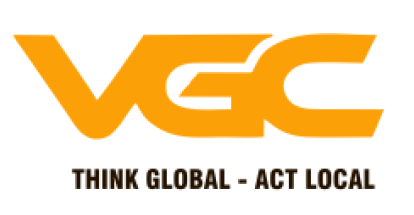Doing business in Vietnam – Opportunities and Challenges
Doing business in Vietnam
I. Opportunities
1. Vietnam has a stable political – social economy with steady economic growth
Vietnam’s economy from 1991 to 2010 grew by 7.5% / year, and despite difficulties in the following period, from 2011 to 2013 the economy still grew by 5.6% / year. In the following years, the average growth rate is over 6%. (Source: World Economic Forum)
2. Vietnam government has implemented many policies to support and attract foreign investors
Vietnamese government committed to creating a fair, transparent investment environment, continuously improving the legal frameworks for investment and business activities.
The Law on Investment 2014 was enacted to create a transparent legal basis to ensure the exercise of the right to freedom of investment by providing the law on the sectors and trades banned from investment (6 industries) and conditional business lines (267 industries) and many regulations on simplifying administrative procedures.
In addition, policies on investment incentives and investment assistance are also applied.
Investors will enjoy preferential treatment on corporate income tax, import tax, land use tax, … when investing in the business lines given investment incentives and in the administrative divisions given investment incentives (Legal base: Law on Investment 2014; Decree 118/2015/NĐ-CP Stipulating and guiding the implementation of the Law on Investment)
Total foreign investment in Vietnam in 2018 reached US $ 35.5 billion, equaling 98.8% over the same period in 2017 (Source: VnEconomy)
3. Vietnam has been recognized as a country with abundant labor resources, backed by the young population.
Vietnam currently has a population of 95 million, ranking 14th in the world. The average age of Vietnam is 30.8, lower than the Chinese average of 37.3, about 60% of the labor force under 35 years old. (Source: Worldometer; Nielsen)
4. Vietnam is increasingly internationally integrate by accessing bilateral and multilateral trade agreements
Vietnam has signed many international treaties with major partners such as VKFTA (Vietnam – Korea), CPTPP (Comprehensive and Progressive Agreement for Trans- Pacific Partnership), AHKFTA (ASEAN – Hong Kong). Kong), … and gradually remove tariff barriers, barriers to market entry for foreign investors.
II. Challenges
1. There are many constraints when setting up an enterprise
The World Bank recently released it’s latest Doing Business report, ranking Vietnam 69th among 190 economies for ease of doing business
Despite many proactive reforms, there comes with challenges when starting a business in Vietnam such as:
- Investors need to have a land lease contract for business location before registering to set up an enterprise
- There are some restrictions on business lines for foreign investors, especially those are not included in the international treaties, requiring investors to carry out investment evaluation and consult with relevant ministries and branches. For example: Debt trading service, property auction service, price appraisal, …
- It may take an average of 18 working days for a new business to set up, along with a number of mandatory and time-consuming administrative procedures.
2. The legal system is complex, incomplete, and there are many grey or ambiguous areas
In the field of tax, foreign investors in Vietnam should be subject to taxes such as corporate income tax; V.A.T tax; personal income tax; foreign withholding tax; severance tax; excise tax,…
When an investor wants to invest in the infrastructure sector, the investor encounters difficulties in the services to be sold, whether the Investment Registration Certificate is granted or not, and other risks.
For example, the direct purchase and sale contract between investors and Vietnam Electricity Group (EVN). Accordingly, EVN has the right to refuse to purchase electricity from these projects, which puts a burden of risk on investors.
Another example relates to the import regulation of used machinery. Accordingly, foreign investors cannot utilize their existing machines (especially those have been used for more than 10 years) to bring to Vietnam for production.
Meanwhile, Vietnam’s supporting industry has not developed strongly, leading to difficulties in investing in manufacturing (Legal base: Decision 18/2019 / QD-TTg Regulation on machinery import, used equipment and technology lines).
In addition, some provisions of the Law on Investment are contradictory, overlapping or inconsistent with other Laws, such as some inconsistent clauses between the Investment Law and the Land Law, the Law on Environmental Protection, …
If you are having difficulty with investment in Vietnam, please contact us: LTT & Lawyers is a professional law firm established in Vietnam which has a number of notable practice fields in the legal market such as Labour and Employment, Enterprise and Investment, Selling and Merging, Dispute Resolutions and Intellectual Property. We are confident to provide clients with legal services optimally and effectively.
